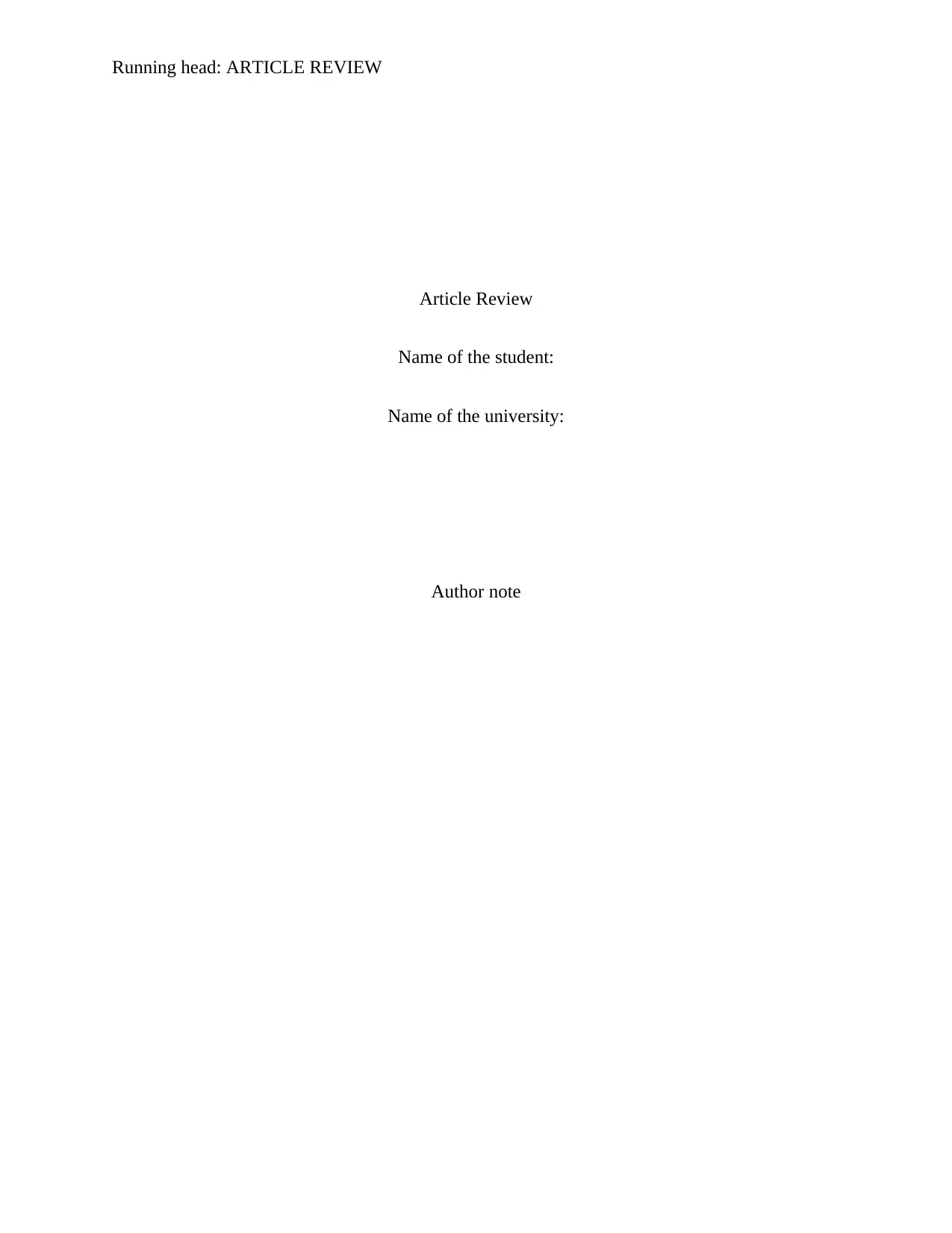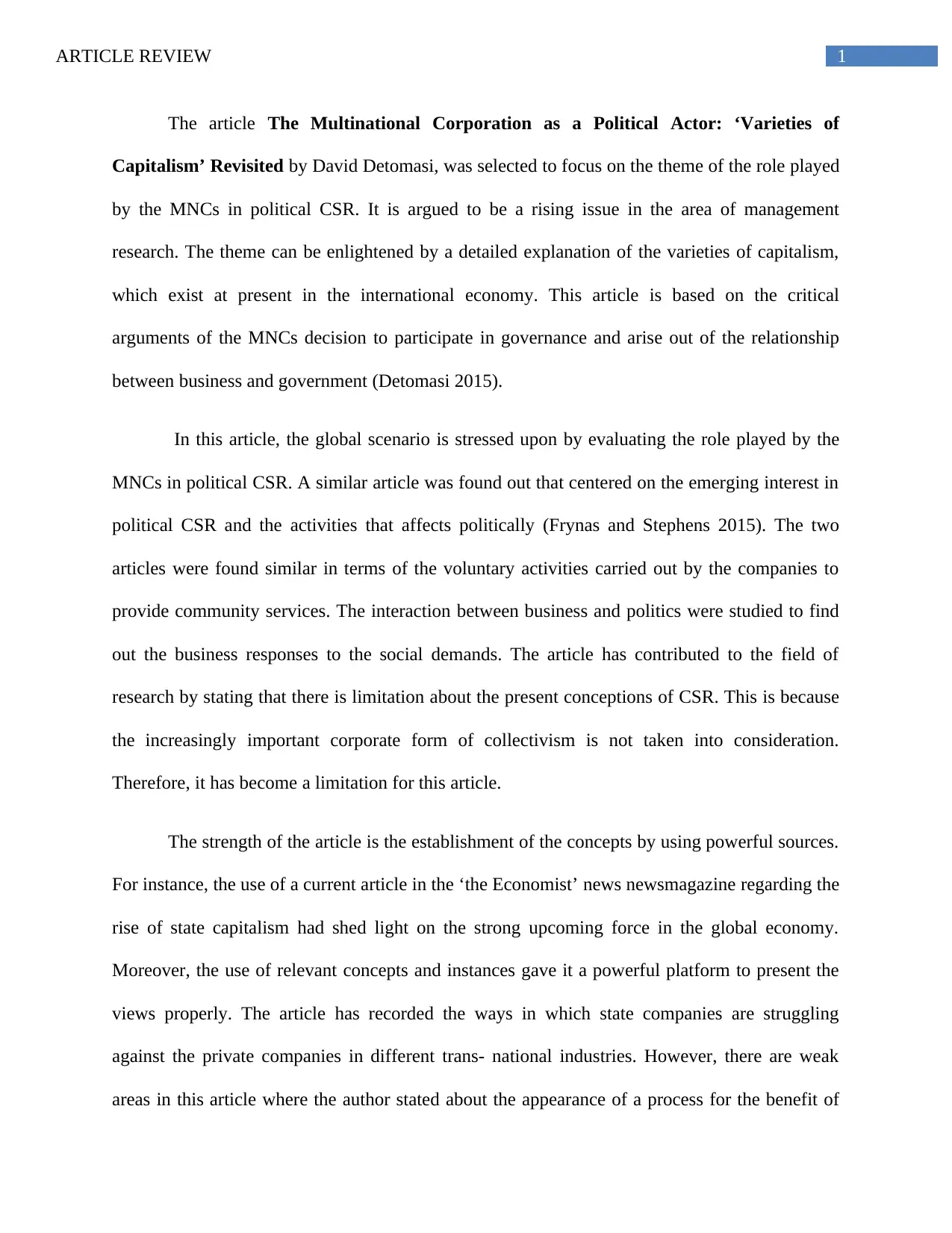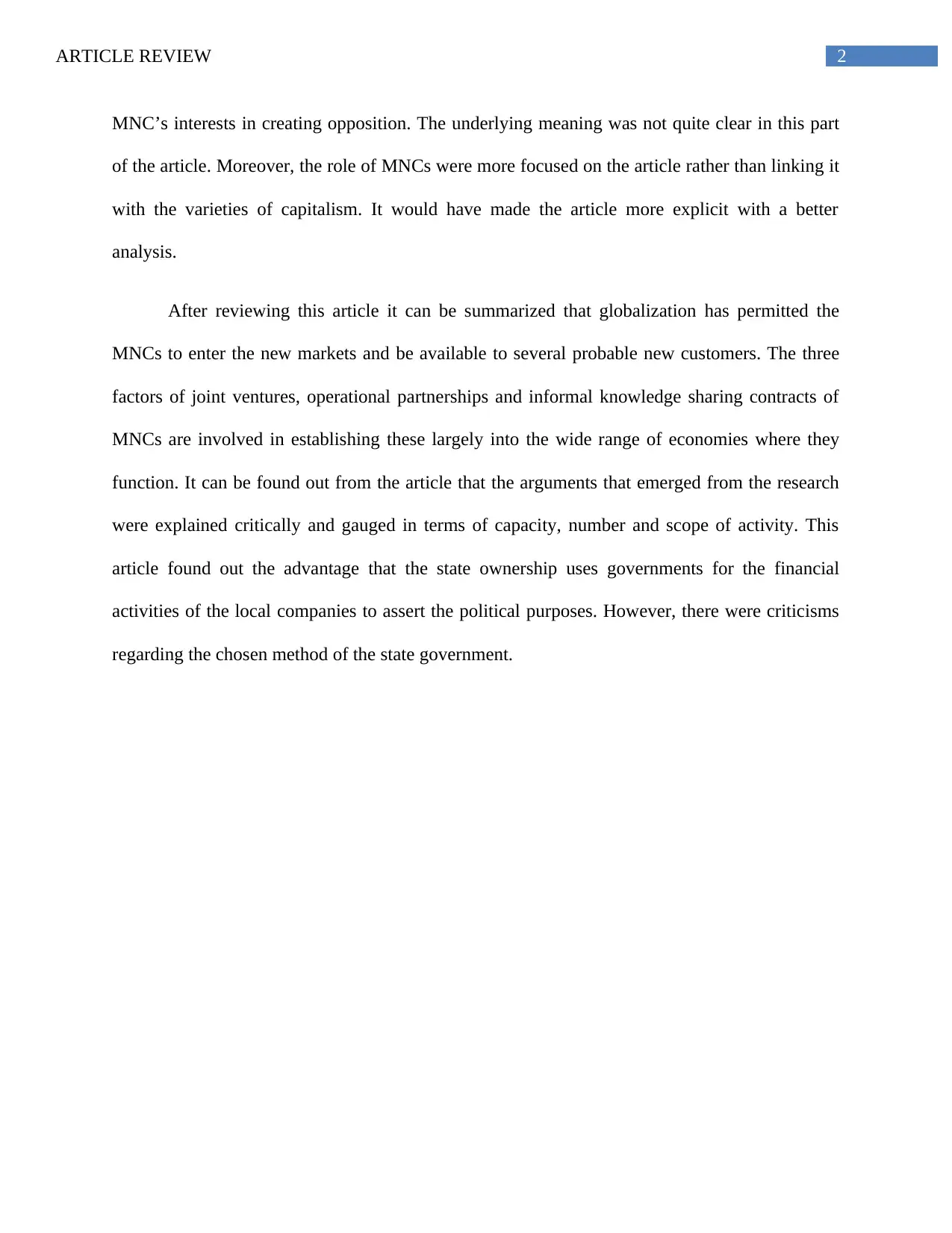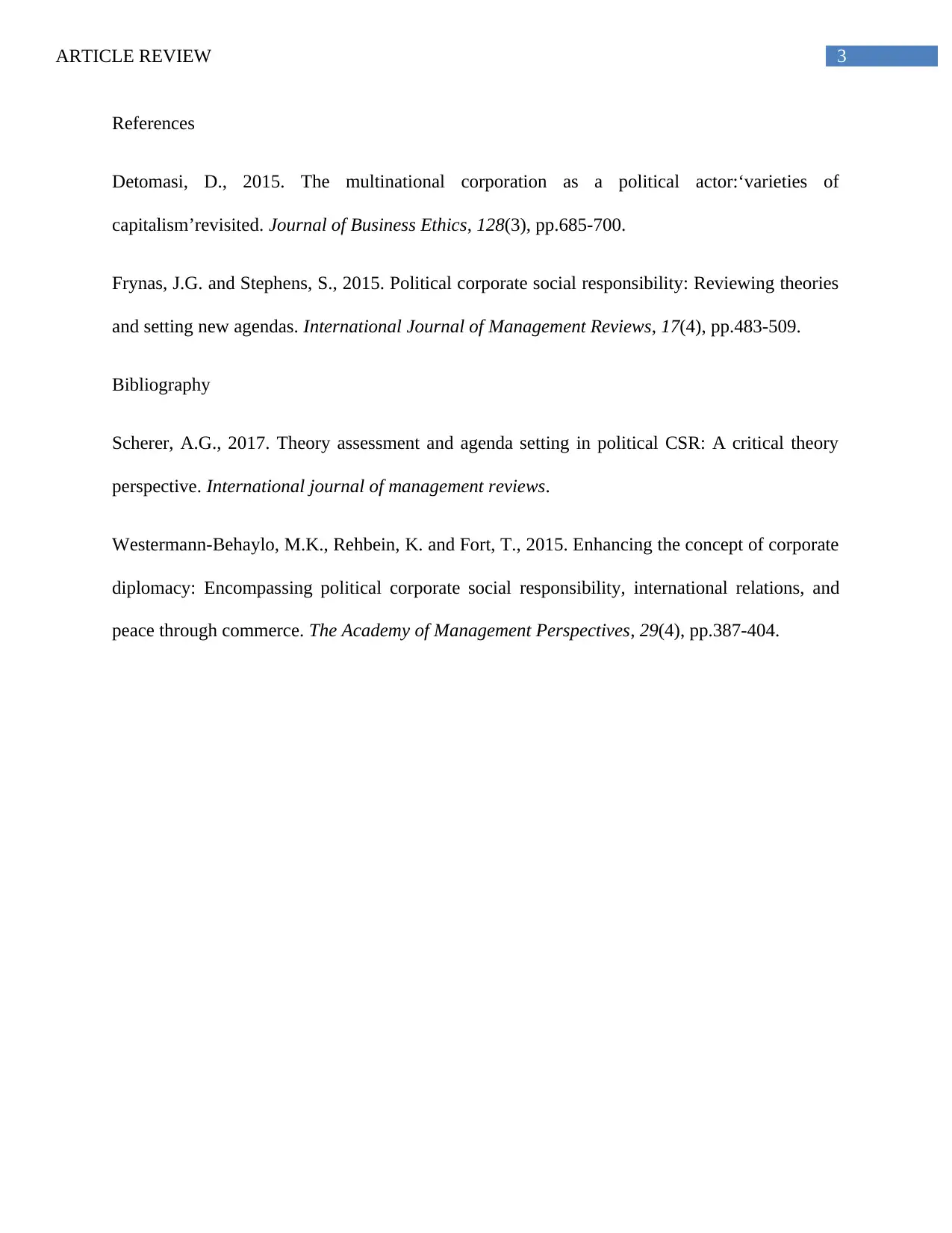Article Review: The Role of MNCs in Political CSR, University Name
VerifiedAdded on 2021/04/17
|4
|721
|67
Report
AI Summary
This article review examines David Detomasi's article, "The Multinational Corporation as a Political Actor: ‘Varieties of Capitalism’ Revisited," focusing on the rising issue of MNCs' role in political CSR within the context of globalization. The review highlights the significance of understanding the varieties of capitalism in the international economy, particularly in the relationship between business and government. The analysis draws comparisons with a similar article by Frynas and Stephens, discussing voluntary corporate activities and business responses to social demands. The review acknowledges the article's strength in using powerful sources and relevant concepts but identifies limitations, such as the insufficient consideration of corporate collectivism and the focus on MNCs rather than a detailed link to the varieties of capitalism. The review concludes that globalization has allowed MNCs to enter new markets, and the arguments are critically explained and gauged in terms of capacity, number, and scope of activity, while also acknowledging the criticisms regarding the chosen method of the state government.
1 out of 4











![[object Object]](/_next/static/media/star-bottom.7253800d.svg)